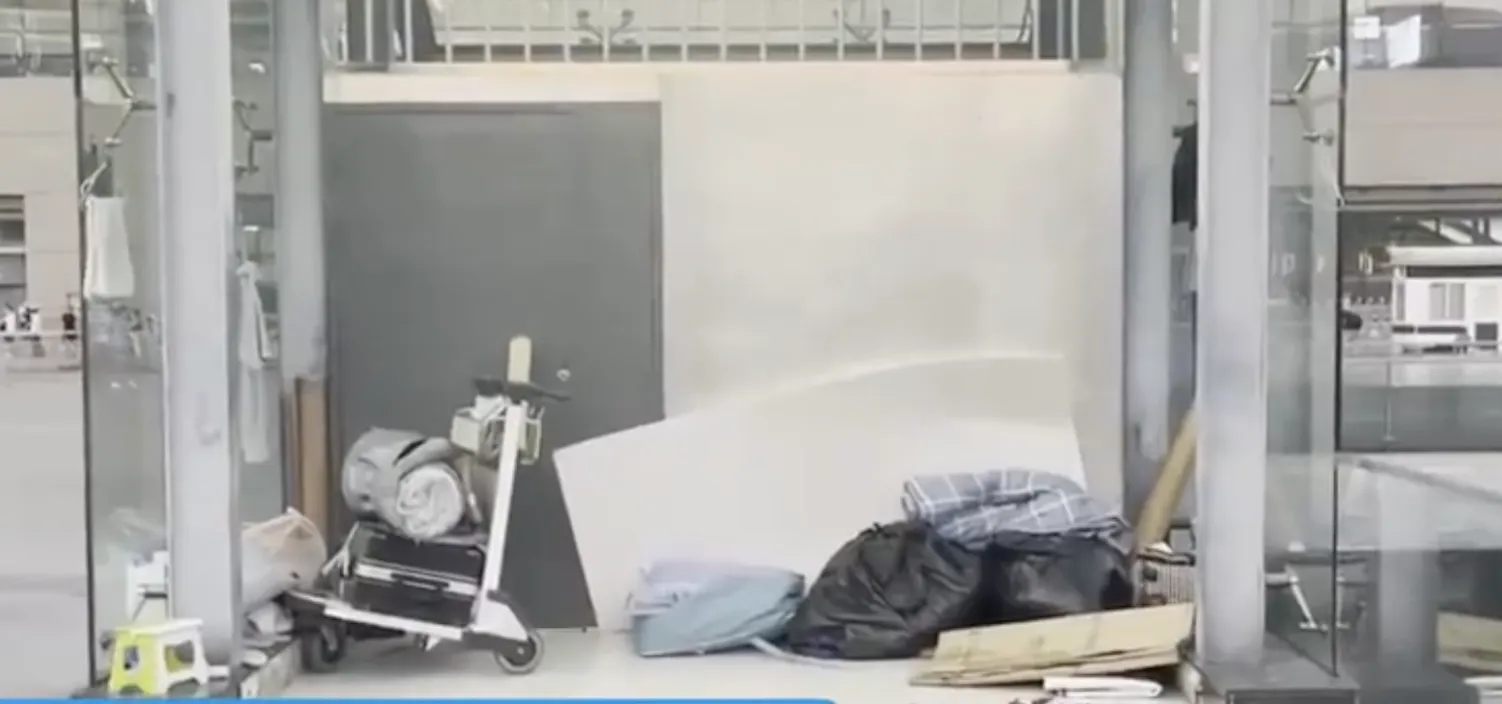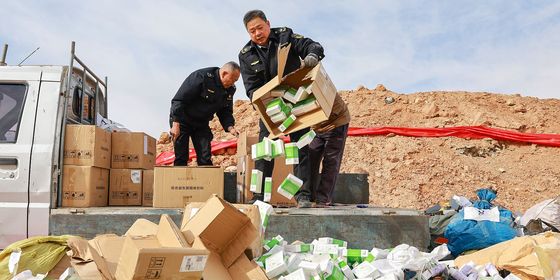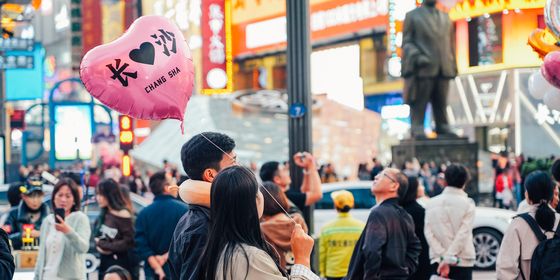Shanghai employers discriminate against those with Covid-19 infection history, Weibo cracks down on censorship evasion, thief caught after blood from mosquitoes found—it’s Viral Week
Job-seekers rejected due to Covid-19 infection history
Many Shanghai enterprises have been criticized for rejecting job applicants who have previously tested positive for Covid, or worked in emergency “shelter hospitals” in the past. One women, known as Ah Fen, went viral for having to sleep in the public restrooms at Shanghai Hongqiao Railway Station and subsist on bread because of discriminatory hiring for former Covid patients. She has since found a job in a courier company.
Weibo cracks down on censorship evasion strategies
Microblogging platform Weibo has announced it will start cracking down on “inappropriate content“ that users post using homophones and emojis to evade censors. Netizens commonly use these strategies, as well as pinyin and intentionally misspelled words, to post potentially sensitive content online, or to rewrite and repost content that has already been removed by censors.
Dior accused of cultural appropriation
Netizens have accused luxury brand Dior of plagiarizing a traditional Chinese garment. Many Chinese netizens pointed out one of the skirts in Dior’s 2022 Fall Collection, described as “all-new,” had many similarities to a traditional Chinese “horse face pleated skirt” popular in the Ming dynasty (1368 – 1644). The hashtag “Dior Copies Horse Face Skirt” amassed over 146 million views last weekend, with many users slamming the brand for claiming the skirt was their own design. The company previously attracted criticism last November for a racist marketing campaign.
Mosquitoes foil burglar
Police identified and caught a thief in Fuzhou, Fujian province, after tracing his DNA from the blood of dead mosquitoes. The thief, surnamed Chai, broke into an apartment and then stayed their overnight. When police investigated, they discovered two dead mosquitoes with blood smears on the wall, and successfully identified the perpetrator after running the blood through their DNA databases. Netizens were amazed that mosquitoes helped solve the crime, and considered Chai’s arrest their revenge for their deaths.
Complaints as music festival prices soar
The Cactus Music Festival in Chengdu, Sichuan province, triggered public anger with its high ticket prices. Early bird tickets were 999 yuan for a single day, almost tripled the price at the festival in 2018. The related hashtag passed 90 million views, with many netizens accusing the organizers of price gouging.
Artist Nut Brother brings attention to pollution
Artist and activist Nut Brother has organized for victims of air pollution in a northeastern city to call a pay-phone in Beijing to complain. The pollution in the city of Huludao, Liaoning province, began this year, according to locals. Residents claimed to be able to smell “sweet almonds” on the breeze, and complained of frequent headaches, sore throats, and numbness. Local government repeatedly ignored complaints despite being aware of emission problems from several local industrial plants (Beijing Youth Daily reported that they may have wanted to avoid angering a major local tax-paying industry). Nut Brother arranged for residents to call a pay-phone in Beijing at fixed times each day to spread the word, urging citizens and journalists to take up the story. On July 5, local government issued a statement saying the matter would be investigated, and illegal emissions curbed.
Netizens debate how scary new horror film actually is
Highly anticipated horror movie Incantation has made waves in China since its release on Netflix on July 8. The film has already received over 93,000 reviews and 42,000 comments on the rating site Douban. Viewers are split on the movie, however, with its overall rating on Douban sitting at a mediocre 6.9, while the hashtag “Is Incantation scary?” passed 200 million views on Weibo in recent days. Many netizens answered with a resounding “no.”
Building in Chongqing museum damaged by extreme heat
The tiles of a roof on an ancient building inside Chongqing’s Forbidden City Cultural Relics Museum slid off on Monday as extreme heat hit the southwestern city. According to the museum staff, the concrete layer that stuck the tiles to the roof was destroyed after days of temperatures as high as 40 degrees Celsius. Last week, Chongqing’s Metrological Department issued a level-three high-temperature warning as the city roasted.
Sharp rebukes for poor-quality knife
“Time-honored” scissor brand Zhang Xiaoquan (allegedly founded in 1628 during the Ming dynasty) faced cutting criticism from a customer who alleged that a cleaver she bought broke in two when she tried to chop garlic by a traditional method known as hengpai, which consists of slamming vegetables with the the flat side of the blade; the garlic was left unharmed. The brand’s two statements in response—first alleging that not all vegetables should be subject to hengpai, and later that not all knives were suitable for chopping garlic—did not satisfy netizens, and intensified criticism of the declining quality of many of China’s “time-honored” brands.
Gaming company installs cameras to monitor employees
A video game development company in Shenzhen came under fire after images online showed surveillance cameras above every employee’s workstation. The company’s managers claimed they were worried about their intellectual property, particularly the prospect of one of their games being leaked before its official release date. However, after netizens criticized the company for infringing the privacy of employees, they agreed to remove the cameras.
Nobel Prize winner disowns inspirational quotes
Noble Prize-winning author Mo Yan has posted an article on WeChat clarifying that many “inspirational” quotes and essays attributed to him on the internet are, in fact, not things he has ever said or written. As one of China’s most renowned modern authors, Mo Yan has been debunking statements credited to him since 2017, and said he once even received 400 yuan in payment from a publishing company that used one of his alleged essays in a textbook.












